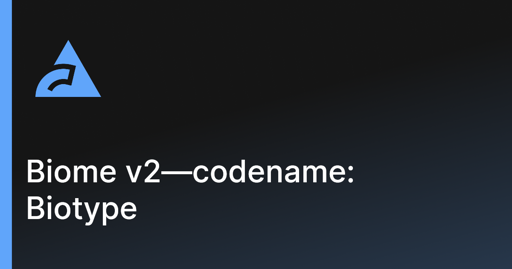- 2 Posts
- 11 Comments

 6·4 months ago
6·4 months agoIt’s that the compiler doesn’t help you with preventing race conditions. This makes some problems so hard to solve in C that C programmers simply stay away from attempting it, because they fear the complexity involved.
It’s a variation of the same theme: Maybe a C programmer could do it too, given infinite time and skill. But in practice it’s often not feasible.

 71·4 months ago
71·4 months agoWhich one should I pick then, that is both as fast as the std solutions in the other languages and as reusable for arbitrary use cases?
Because it sounds like your initial pick made you loose the machine efficiency argument and you can’t have it both ways.

 5·4 months ago
5·4 months agoI’m not saying you can’t, but it’s a lot more work to use such solutions, to say nothing about their quality compared to std solutions in other languages.
And it’s also just one example. If we bring multi-threading into it, we’re opening another can of worms where C doesn’t particularly shine.

 71·4 months ago
71·4 months agoWell, let’s be real: many C programs don’t want to rely on Glib, and licensing (as the other reply mentioned) is only one reason. Glib is not exactly known for high performance, and is significantly slower than the alternatives supported by the other languages I mentioned.

 312·4 months ago
312·4 months agoI would argue that because C is so hard to program in, even the claim to machine efficiency is arguable. Yes, if you have infinite time for implementation, then C is among the most efficient, but then the same applies to C++, Rust and Zig too, because with infinite time any artificial hurdle can be cleared by the programmer.
In practice however, programmers have limited time. That means they need to use the tools of the language to save themselves time. Languages with higher levels of abstraction make it easier, not harder, to reach high performance, assuming the abstractions don’t provide too much overhead. C++, Rust and Zig all apply in this domain.
An example is the situation where you need a hash map or B-Tree map to implement efficient lookups. The languages with higher abstraction give you reusable, high performance options. The C programmer will need to either roll his own, which may not be an option if time Is limited, or choose a lower-performance alternative.
Of course, but it needn’t be black and white. You can also diversify, make yourself less reliant on a single platform. And by doing so, enable your audience to follow you elsewhere. Or diversify into different activities altogether. And when it’s no longer half your income on the line, then switch.
But doing nothing and saying, “but half my income!”? That’s not only a choice, but also complacency.
Great points, except:
People can’t leave for anything smaller.
They can and some do. It’s still a choice.

 5·7 months ago
5·7 months agoI’m not arguing against that. Merely providing some counterweight to the idea that the author was “flinging shit in the trenches” 😅

 12·7 months ago
12·7 months agoI found the title of that section slightly triggering too, but the argument they lay down actually makes sense. Consistency helps you to achieve correctness in large codebases, because it means you don’t have to reinvent what is correct over and over in separate pockets of the codebase. Such pockets also make incremental improvements to the codebase harder and harder, so they do come back to bite you.
Your example of vendors doesn’t relate to that, because you don’t control your vendor’s code. But you do control your organisation’s.

 5·7 months ago
5·7 months agoThere is a serious attempt for that actually: https://www.assemblyscript.org/
It doesn’t offer full compatibility with the regular TypeScript though, despite being very similar.


tscis (very) slow and there are also no convenient ways to interact with it from Rust.So it saves a lot development and CI time to roll our own. The downside is that our inference still isn’t as good as
tscof course, but we’re hopeful the community can help us get very close at least.